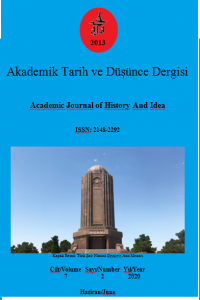عقلای مجانین در مثنویهای عطار
موتیف (بنمایه) را میتوان یک کهنالگو، یک واقعه، یک موقعیت و یا یک مفهوم محوری دانست که نویسنده آن را بهصورت آگاهانه یا ناخودآگاه مکرراً استفاده میکند تا یک تم یا یک حس معین را در اثر به وجود آورد. عقلای مجانین یکی از محوریترین موتیفهای عرفانی موجود در مثنویهای عطار هستند. عقلای مجانین یا خردمندان دیوانه کسانی بودند که رفتارشان مانند دیوانگان و برخلاف آداب اجتماع و احکام شریعت بود؛ اما سخنان اندیشمندانهای بر زبان میراندند. در این نوشتار ابتدا ریشۀ لغوی و معنای اصطلاحی موتیف در ادبیات ملل کاویده شده و تعریف پیشنهادی از موتیف ارائه شده است. سپس حکایات مثنویهای عطار بر اساس حضور عقلای مجانین در شش دستۀ 1. درس آزادگی 2. اعتراض به حاکمان و پادشاهان 3. گستاخی در برابر خداوند 4. اعتراض به عابدان و واعظان ریاکار 5. اعتراض به مردم غافل و حریص و متکبر 6. عشق دیوانگان به خدا؛ قرار گرفته و تحلیل خواهند شد. یافتههای این پژوهش نشان میدهد که عطار هر جا می¬خواهد دردهای اجتماعی خود را بگوید یا بر نظام آفرینش خُرده بگیرد و یا عقاید دینی را نقد کند، پای این هوشیارانِ دیوانه شکل را به میان می¬کشد و از زبانشان نکتههای نغز بیان می¬کند و نقدهای ظریف و اعتراضات بسیار لطفآمیز وارد میکند.
Anahtar Kelimeler:
موتیف, عقلای, مجانین, عطار, نتقاد اجتماعی.
Free wise men in Attar's Masnavi
Motif; ıt is a basic concept consisting of an archetype, event, or situation that the author uses consciously or unconsciously in his work, by repeating it to emphasize a certain theme or emotion. The Free wise men are one of the most important mystical motifs in Attar's Masnavi. The Free Sages spoke wisely, even if they acted like madmen and acted against the traditions and rulers of the Shari’a. In this article, first, the origin of the word motif and the meaning of the term in the literature of nations were investigated and a motif definition was made. Attar's Masnavi contains anecdotes based on the existence of free wise man in six categories: 1. The Lesson of Freedom 2. Protest against rulers and kings 3. Arrogance against God 4. Protest against worshipers and hypocritical preachers 5. Protest against ignorant, greedy and arrogant people 6. Love God. Second, these anecdotes will be found and analyzed. The findings of this study show that wherever Attar wanted to express his social suffering, or criticize the system of creation, or criticize religious beliefs, he expressed them, expressed his his ideas in their language, made good points, and made subtle criticisms. and polite protests.
Keywords:
Motif, Free Wise Men, Attar, Social Criticism.,
___
- Reference 1 Attar, Elahi nameh, Sokhan, Tehran, 1392. Reference2 Attar, Asrar nameh, Sokhan, Tehran, 1392.
- Yayın Aralığı: Yılda 6 Sayı
- Başlangıç: 2013
- Yayıncı: Hakan YILMAZ
Sayıdaki Diğer Makaleler
Kuvayı İnzibatiye / Hilâfet Ordusu
İlyas Əfəndiyevin Hekayələrində Xalq Yaradıcılığının İzləri
TBMM'deki Urfa Milletvekilleri Üzerine Sosyo-Politik Bir Değerlendirme (1946-2015)
عقلای مجانین در مثنویهای عطار
Siber İstihbarat Kapsamında: Echelon İstihbarat Sistemi
Osmanlı Devleti’nde Amerikalı Misyonerlerin Antlaşma Hakları
Cumhuriyet Döneminde Denizli’de Eğlence Hayatına Bir Bakış
Yassıada'da Bir Sadrazam Torunu: Perihan Arıburun
Milli Muhalefet Cephesine Karşı İktidarın Yanıtı: Vatan Cephesi
